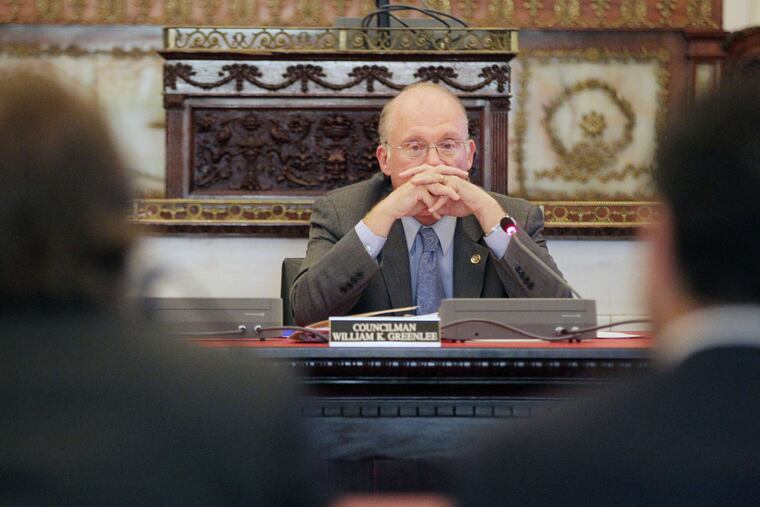City offices should run more like a business — and follow their own cashless ban | Editorial
It’s critical that offices that collect fines, fees, and bills that form the revenue base of the city be as accessible as possible.

When people call on government to operate more like a business, they’re usually referring to efficiency. But there is a much lower bar that government should meet: following the rules it sets for businesses. Specifically in this case, a new requirement that every store accept cash as a form of payment.
Last February, City Council passed a bill, championed by Councilman William Greenlee, to ban cashless stores — the first ban of its kind in the nation. The measure was intended to protect people who are “unbanked” (6% of Philadelphians) or “underbanked” (22%), who might not have access to a credit card. The bill passed despite Amazon’s heavy lobbying.
Mayor Jim Kenney signed the bill and the Philadelphia Commission on Human Relations, which is charged with enforcing the ban, has delayed the ban’s implementation from July to October in order to draft the necessary regulation. The commission filed the regulation on Aug. 9 for 30 days of a public comment period. The only problem is that the city largely exempted itself from the ban.
» READ MORE: Leading by exemption? Philly carves government offices out of city’s ban on cashless stores.
The regulation allows city offices to be exempt as long as they have a “convenient location” that does accept cash. That means that satellite offices would not need to comply because large central offices — such as those in the Municipal Services Building — would accept cash. It’s unclear to whom the Municipal Services Building is “convenient" other than those living in Center City.
The Commission on Human Relations argues that mandating every office to accept cash would require a overhaul of their systems. Further, city offices accept forms of payment that don’t require a bank account — like money orders — that businesses rarely do.
If no one calls for a hearing by Sunday, the regulation will go into effect Oct. 1. According to the commission, as of Tuesday morning no one had yet called for a hearing. Greenlee, who says he believes that every city office should accept cash, is not planning to call for a hearing because he doesn’t want to further delay the implementation of the bill.
Aside from the obvious role of the city to lead by example, it’s critical that offices that collect fines, fees, and bills that form the revenue base of the city be as accessible as possible. In 2016, for example, delinquent water bills amassed to $262 million. About 20% of that debt came from Councilwoman Maria Quiñones-Sánchez’s district in the Northeast — which has only 10% of the city’s population. About 37% percent of households in the district live in poverty, a much higher rate than the citywide 24%.
When you are struggling to pay your $45 to $65 water bill, extra dollars on transportation or money order fees could be the difference between paying and not.
Council is still on its summer vacation for another week, but at least one of the members should do their job and call for a hearing to delay the ban’s implementation, and close the loophole that the city created for itself. If the city is not willing to follow its own rules, how can it ask anyone else to?